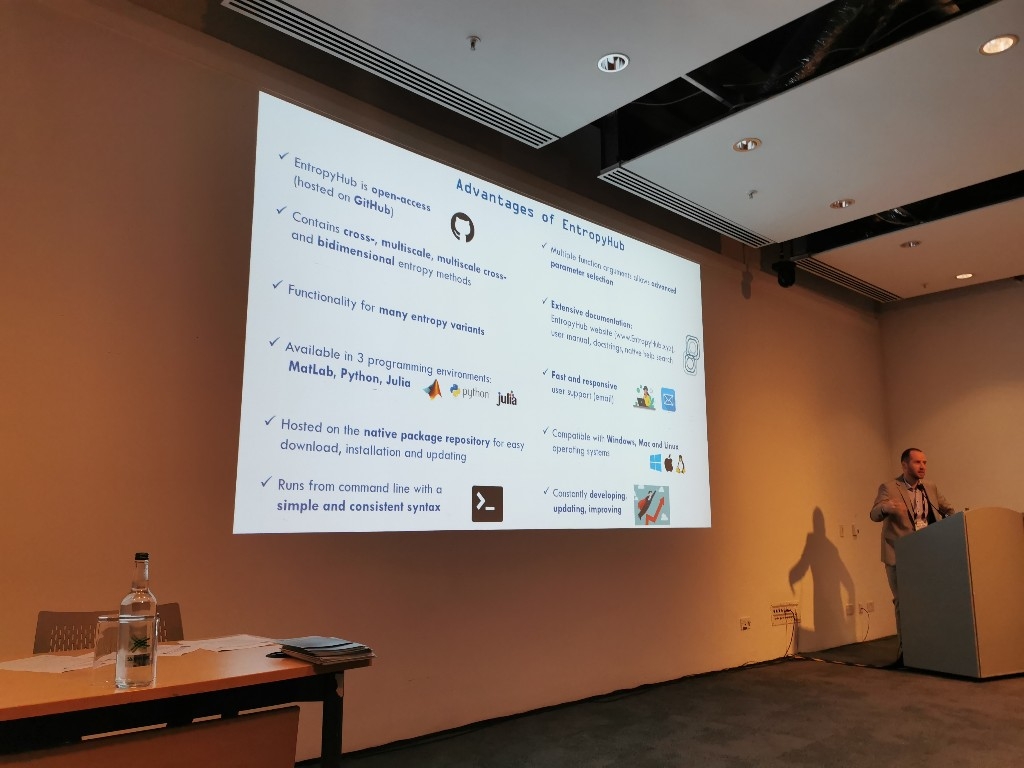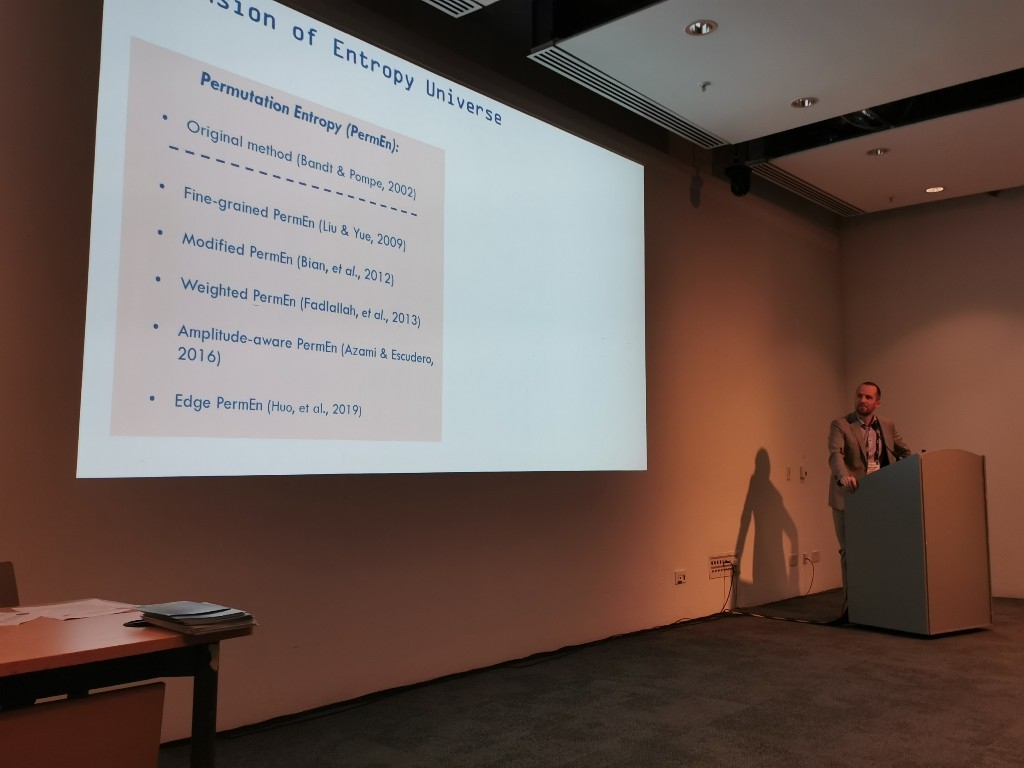Latest Updates
April 2024
Version 2.0 is out now!
- + New multivariate methods
- + New multivariate multiscale methods
- + Extra signal processing tools
- Docs edits
March 2024
Version 1.0 is here!
- + New entropy methods
- + New fuzzy membership functions
- + Phase Permutation Entropy
- + Cross-Entropy with different length sequences
- + Refined-Composite Multiscale Fuzzy Entropy
- + Generalized Multiscale Entropy
- + Variance of sample entropy estimate
Several little bugs and inconsistencies have also been fixed in this release. We want to thank all of you who have identified and alerted us to these bugs. Most of these bugs have been noted via the GitHub issues portal.
- Bug fixes
- Other Changes
More to come!
November 2022
EntropyHub is 1 year old!
July 2022
IEEE EMBC Symposium on Entropy Algorithms


February 2022
EntropyHub Presentation at IEEE EMBC Glasgow 2022

Read more about the conference programme here
Hope to meet you there!
December 2021
Version Update - EntropyHub v0.2
+ EntropyHub v0.2 includes two new bidimensional entropy methods:
November 2021
Publication of paper on EntropyHub in PLoS One.

Matthew W. Flood and Bernd Grimm,EntropyHub: An Open-Source Toolkit for Entropic Time Series Analysis,PLoS One 16(11):e0259448 (2021),DOI: 10.1371/journal.pone.0259448
Version Update - EntropyHub v0.1.1
EntropyHub v0.1.1 includes corrections to the entropy of entropy (EnofEn) function. Following this update, users can specify the amplitude range (xmin, xmax) over which the number of slices (S1) are partitioned. See the source literature for more info.
June 2021
First release of EntropyHub (v0.1).
The initial release of the EntropyHub toolkit on all platforms including:
As with all initial releases, there may be some bugs, typo’s or other small issues that will be ironed out in time.
